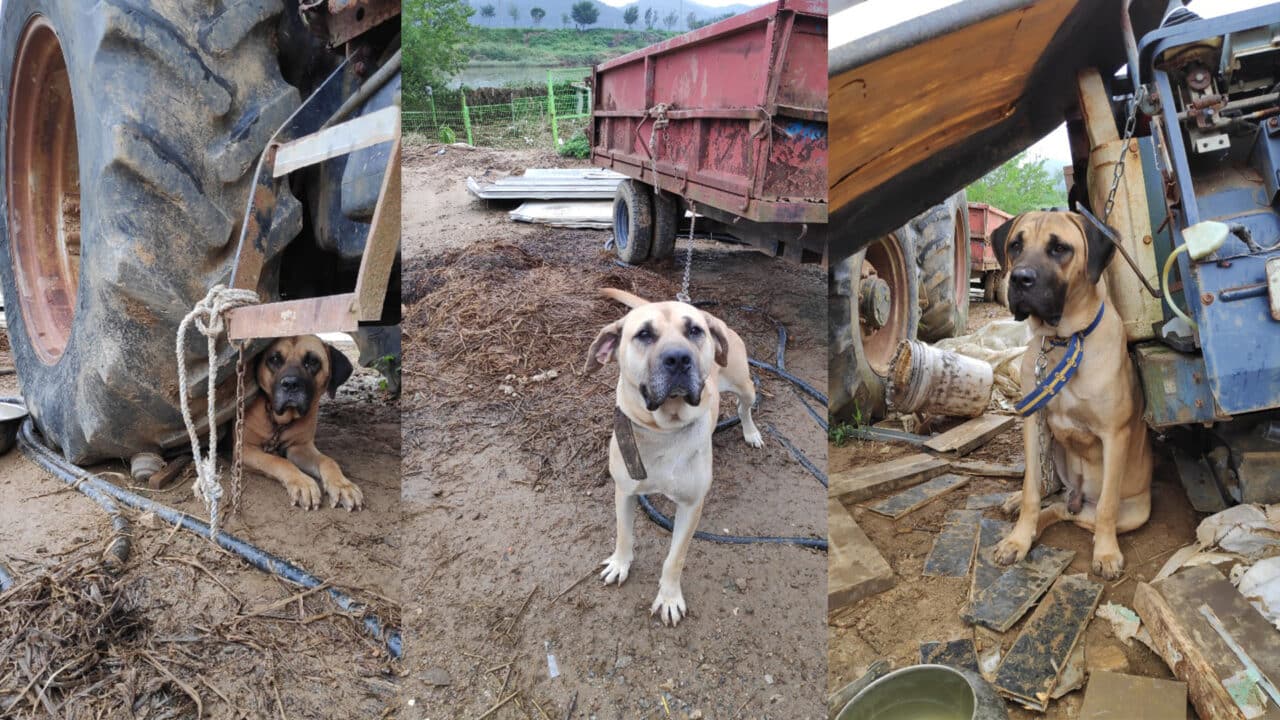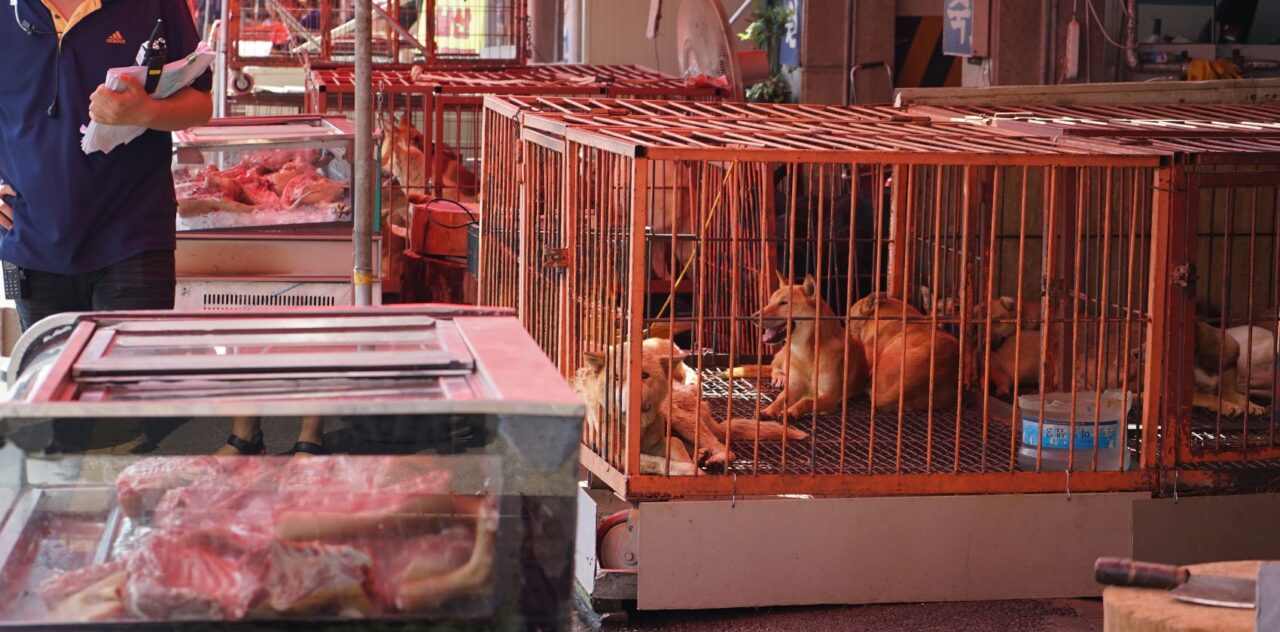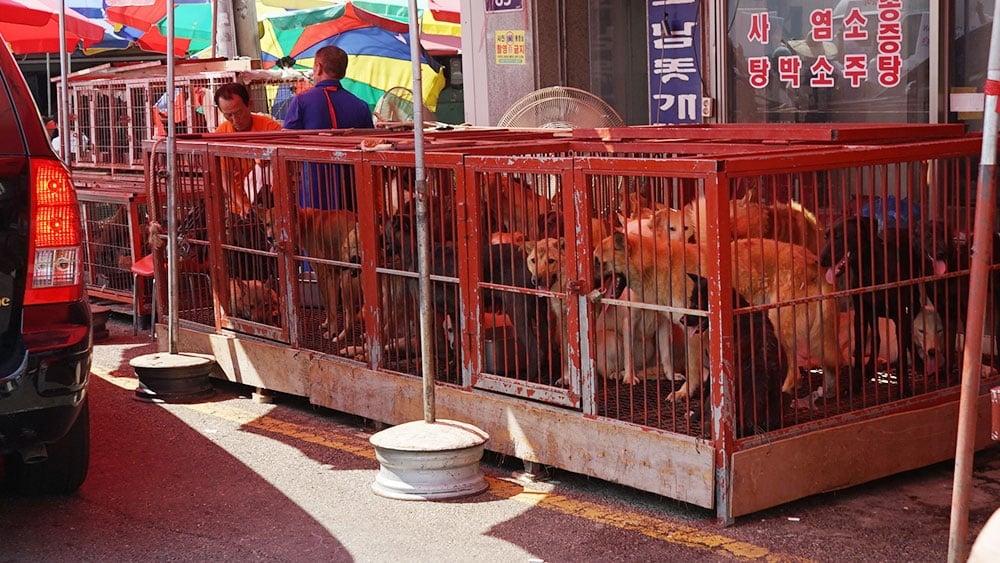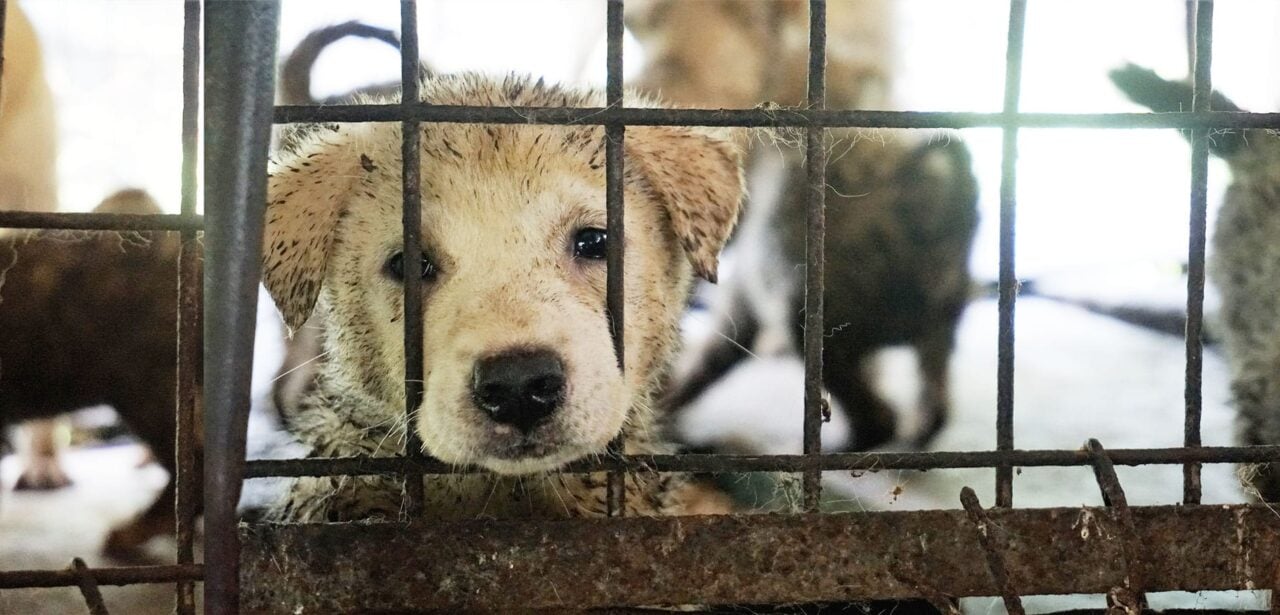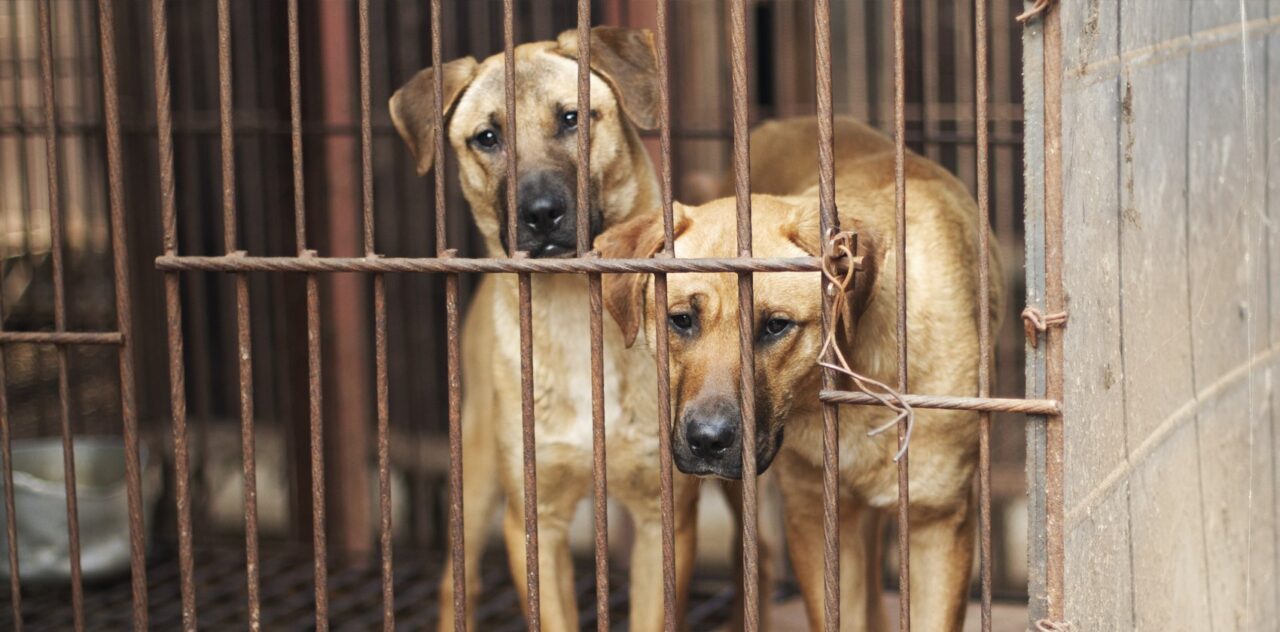Boknal: Did You Know?
Boknal, Korea’s annual dog meat tradition in which dog meat consumption is encouraged during the “hottest days of summer” to boost stamina, and immune systems, and prevent or cure other ailments, is now underway in Korea.
On July 11 (Chobok, Day 1), July 21 (Joongbok, Day 2), and August 10 (Malbok, Day 3) and every day in between, dog meat restaurants and markets will come “alive” with the screaming cries of dogs being callously tortured and slaughtered for human consumption. Torture is used prior to slaughter under the misguided and unproven belief the resulting release of adrenaline will maximize taste and nutritional properties.
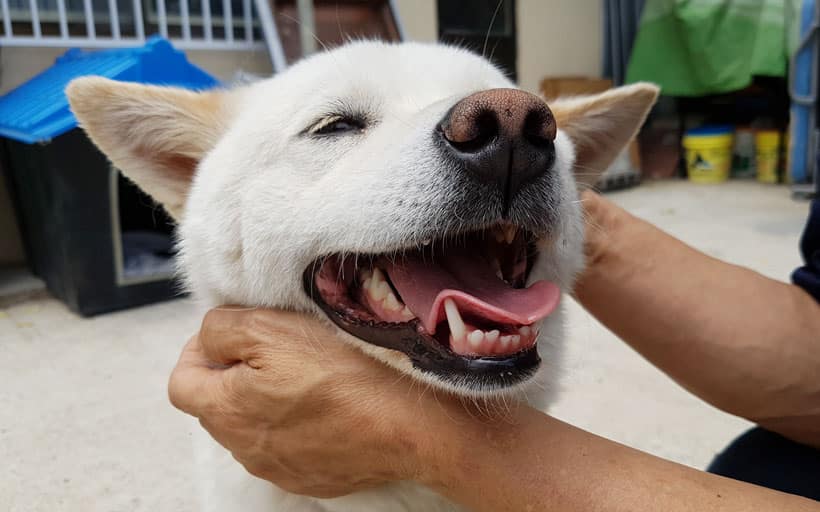
In light of Joongbok this year, here are a few facts you may or may not have known about the dog meat trade.
- There is no such thing as a “meat dog”. Korean society sometimes distinguishes between “companion dogs” and “meat dogs” or “meat breeds”, with some dog farmers even owning dogs as companions. In reality, the industry doesn’t discriminate, dogs of all breeds, sizes, ages, and backgrounds are victimized.
- Dog meat is consumed year-round and is most popular among men of older generations. It is believed to enhance stamina, libido, and energy.
- Dog meat consumption is not only limited to Korea. The meat trade exists in many Southeast Asian countries such as China, Thailand, Vietnam, and Cambodia. China’s annual dog meat festival in Yulin, which occurs during the summer solstice.
- Dog meat survivors can 110% be rehabilitated into companion animals. Our alumni are proof of this. In fact, some were indeed pets prior. Dog meat sellers source dogs from any means, including individuals who sell their unwanted dogs or from local pounds where dogs have been surrendered. Other sources include capturing strays and small/large-scale dog meat operations.
- Not all victims come from farms. Many people in rural areas keep dogs, who are often captured as strays, to breed and sell to the meat trade as a side business which can be very lucrative during Boknal.
- Killing dogs for meat is in fact illegal in Korea, but laws are often ignored. The legislation doesn’t equal enforcement, and the laws themselves are extremely vague making them easy to challenge.
- Although now a declining trend, popularity has once again gained momentum during the COVID pandemic, believing consumption will boost immunity and subsequently deter infection.
To learn more about Boknal, head over to our blog, Boknal: Korea’s Notorious Dog Meat Tradition.
Subscribe for Updates
Get our dogs in your inbox once a month, along with our latest news and events. We never send spam, and you can opt out at any time.

